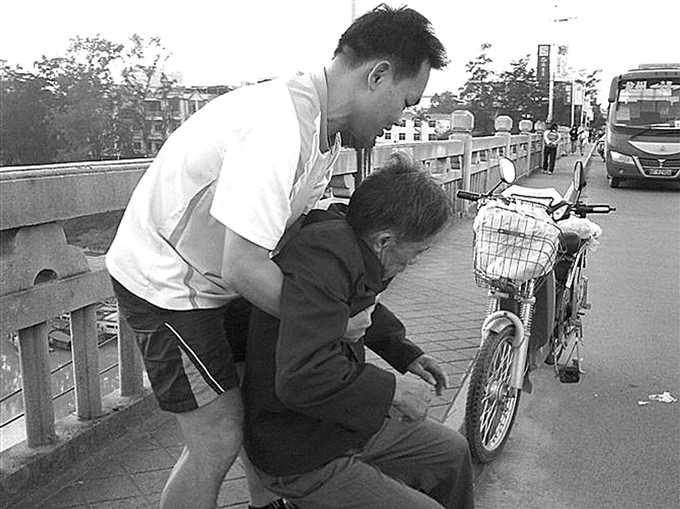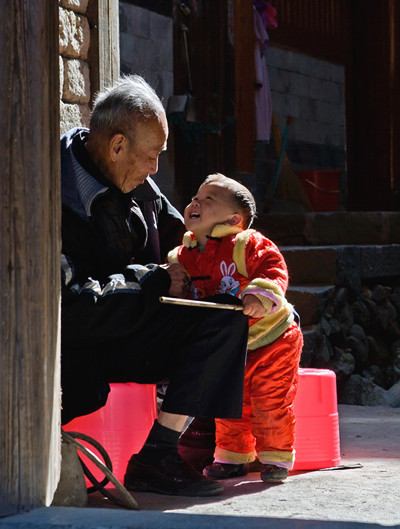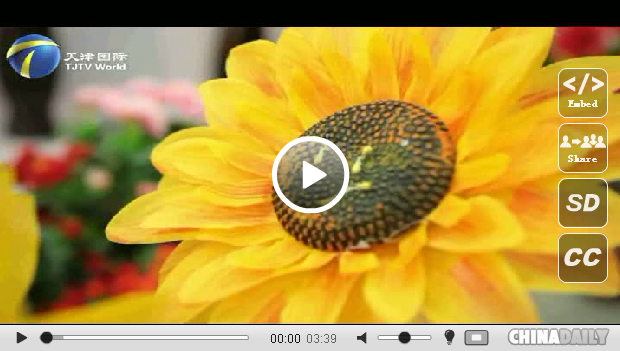 |
| Will you help a fallen old man? |
"Help, I've Fallen and I Cant Get Up!" was the title of a famous TV commercial in the United States in the 80's. It was promoting a security device that a senior could press if they were in danger and the receiver would immediately send help. This was before mobile phones. The commercial became very popular and recited by comedians and other TV shows. The commercial showed an elderly lady, (her name was Mrs. Fletcher) had fallen in the bathroom and unable to get up on her own, she presses the device and soon help is on the way.
I use this illustration for two events that have occurred in China recently and demonstrate the changing culture and perspective towards the elderly. Respect and filial duty towards elderly and parents is still very strong in China, probably more than in Western societies. The Chinese family has always been very important extended unit with the patriarch as the head and filial obligations met by the children.
One can also see this with the way Chinese address their relatives. In the West, we use the general terms of Uncle, Aunt and Cousin without differentiation. In Chinese there are nine different levels of identification that is dependent upon: generation, lineage, relative age and gender. In Chinese culture where the extended family is still valued, kinship terms have survived well into current usage. Also, since it is not proper to refer to or address a more senior family relation by his or her given name, the kinship term is the only possible term of address. When there are many siblings as in many older Post-World War II baby-boomer families, the relation is distinguished and addressed according to age or rank.
For example, 大 Da (great/senior/elder) is used in the address for 大姨 DaYi (the eldest sister of one's mother); 二姨 ErYi for the second eldest sister of one's mother; 三姨 SanYi, for the third eldest sister of one's mother, etc. In cases where someone is older than his more senior relation, such as an uncle, it is common to address the senior relation with a diminutive suffix.
This is something not as strong in Western cultures, asks a westerner to define filial and most do not know. In Chinese, filial piety or duty is 孝順 "Xiao Shun" and is one of the most important aspects of the culture. I am not saying that Westerners do not respect their elders, or not care about their parent, but probably with not as much emphasis as in China. Whereas in the West, an independent way of life is the custom and thoughts of sharing an apartment with your son or daughter is not the norm, like it is in China.
This family devotion can be seen by the several heart-tugging TV commercials leading up to Spring Festival, showing children going through great difficulties to journey back home by train, bus or sea to celebrate the New Year with parents. The reality probably plays out more dramatically, as each year; hundreds of millions make the annual trek during this holiday.
|
|
| Old parents need real company. |
However, this part of the Chinese culture is changing as China changes. Back to my first example with the "Help, I've Fallen…" commercial. In the past year, there were several instances of a fallen old lady, in Liaoning, that was helped by a passing good Samaritan, Ms. Wang, who took pity on her and escorted the lady to a local hospital, called the relatives and even paid the 200rmb doctor fee. Only to find out later that the old lady and her family sued Ms. Wang for 40,000rmb, claiming that she caused the fall. Thankfully, the surveillance camera on the bus showed the truth and Ms. Wang was vindicated.
The second example of changing cultural attitudes is the introduction of a law last year that saw the introduction of a law that states children must visit and care for their parents. The Chinese government is taking the ancient custom of filial piety -- that is, paying respects to one's elders, to a whole new level by enacting a law, effective on July 1, 2013, that requires citizens to frequently visit their elderly parents or keep in touch with them. The law, which was initially passed at the end of 2012 by China's National People's Congress, was part of several amendments to the Protection of the Rights and Interests of the Elderly legislation.
Some details of the law remain vague; for example, the law only states "family members who live apart from their parents should often visit or send regards to their parents." Under Chinese law, ‘elderly parents' are defined as those aged at least 60 and living on their own. According to Article 17 of the new law, family members are prohibited from "overlooking or neglecting the elderly," but do not specify how much time is legally considered as "neglect" and instead defers to the discretion of the elderly. In addition, if elderly parents think their "spiritual needs" are being ignored by their children, they will be able to apply for mediation or bring their case to court.
Although respect for the elderly is deeply engrained in Chinese society, three decades of market reforms have accelerated the breakup of China's traditional extended family, and there are few affordable alternatives like in the West, such as retirement homes.
This all started when a mother felt that her children were neglecting her and sued them. Her case was heard and she won and the children were ordered to visit and support the mother. The new law is thought to be difficult to enforce but felt it was the Chinese government's way of issuing a statement. The other part of Chinese cultural that is important is "Saving Face" 面子 Mian Zi and no one would want to be embarrassed by their parents to appear in court for charges of neglect to their parents.
Why these recent changes to generations of cultural norms for caring for those in need and the elderly? I think that the one-child policy is one cause and the other is the speed that the economy and resulting life style pressures have an influence.
The one-child policy has resulted with one young family have responsibility for 4 sets of parents and more if you include grandparents. In the past, siblings shared this responsibility. The pressures of modern living in the cities, mean that couples have to focus on making a living, making more money, to buy an apartment, a car and provide a good education for their child. Many are living away from hometowns and family support systems.
This results in a very private and narrow living environment. They do not want to get involved with other's hardships or problems, especially when they hear of good Samaritans being sued for trying to help. On the subject of Filial Duty, I don't believe in the saying: "Absence makes the heart grow fonder". I think that longer absences and greater distances will make the relationships more distance: "Out of sight, Out of mind". The modern age of WeiXin, Skype and Cell Phones does not replace the warmth of a hug or the sharing of a meal.
So, next time you see someone in need, help; and start planning a trip to visit your parents, now.






